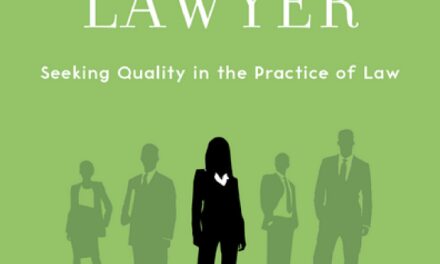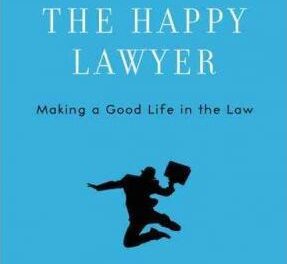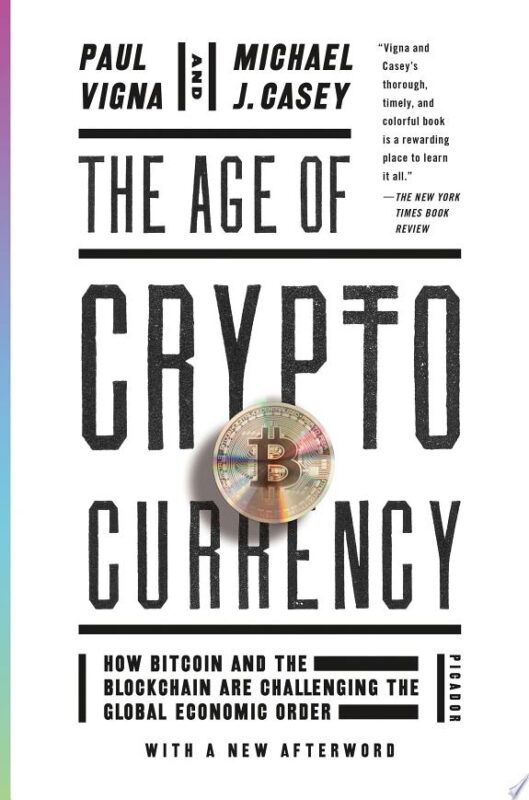Michael Sean Quinn, Ph.D., J.D., Etc.*
These are handouts at several lectures I have given to law students and others over a series of years. If you are interested in legal philosophy focusing on judicial reasoning, precedent, holdings, dicta, and so forth, plus legal realism, you might enjoy these, as “quicky” ways to stimulate reflection. If you are not interested in that sort of thing, stop reading immediately. Because this constitutes a integration, of sorts, of several different lectures, the “typeset” and the formatting are not identical for all parts of the collection. Computers have some rigidities, or I have too many left over ignorances.
********************************************************************************
I. REFLECTIONS
ON PRECEDENT IN LEGAL REASONING
ON PRECEDENT IN LEGAL REASONING
Components
of Publically Available Legal Reasoning
of Publically Available Legal Reasoning
A. Holdings:
Narrow (Formalism? Akin
to “originalism” )
to “originalism” )
Broader
· Reasoning-
in higher court
in higher court
Actually Stated
Immediately Derivable
Variation (Slightly Expansionistic)
Variation (Slightly Expansionistic)
Sensible or Reasonable (But
Obviously Connectable)
Obviously Connectable)
Reasonable (But Not
Obviously Connectable)
Obviously Connectable)
Possible (Creative But
Not Fanciful)
Not Fanciful)
B. Dicta:
Typology
Starting Point: Any statement that looks like it might
be a holding, but isn’t, or any argument in favor of something which is a
holding but isn’t the holding itself.
be a holding, but isn’t, or any argument in favor of something which is a
holding but isn’t the holding itself.
Clearly Closely Connected
& Easily Embraceable
& Easily Embraceable
“Obiter Anything” = Any Affirmatively Asserted Proposition
of Law
Judicial Dicta: Clearly Connected and Part of Aimed
Influence.
Influence.
Guess what: part of dicta in a given case may actually
be the holding, but the court is concealing it or doesn’t realize what it is
doing. There is nothing wrong with that.
be the holding, but the court is concealing it or doesn’t realize what it is
doing. There is nothing wrong with that.
·
The
phrase “We hold. . .” or the phrase “The holding of the court is. . .” do not
make the rest of the sentence what it is said to be.
The
phrase “We hold. . .” or the phrase “The holding of the court is. . .” do not
make the rest of the sentence what it is said to be.
·
There
is a subjective feature of what is a holding.
In the end, that characterization is not always clear and many
characterizations are not objective.
There
is a subjective feature of what is a holding.
In the end, that characterization is not always clear and many
characterizations are not objective.
II. EXTERNAL
INFLUENCE IN CHAIN OF DECISIONS: PRECEDENT OR STARE DECISIS
INFLUENCE IN CHAIN OF DECISIONS: PRECEDENT OR STARE DECISIS
A. What Is It and What Is Its True
Nature
Nature
Essence: Do it now as
it has been done in the past.
it has been done in the past.
·
Exactitude Decrease Probability of
Error (or Recognizable)
Exactitude Decrease Probability of
Error (or Recognizable)
·
Repetition of the Sensible (or Appearance) Feels Like Objectivity
Repetition of the Sensible (or Appearance) Feels Like Objectivity
·
Barrel of Good Reasons (or Appearance and/or for Some
but Not All)
Barrel of Good Reasons (or Appearance and/or for Some
but Not All)
·
Contribution to System of Larger
Customs
Contribution to System of Larger
Customs
·
Source of Social Agreement for a Lot of People and a
Lot of Topics
Source of Social Agreement for a Lot of People and a
Lot of Topics
·
Dissent is Restrained
Dissent is Restrained
·
One Important Source of Social
Stability
One Important Source of Social
Stability
Burkean
Essence: Do it now as it has been done
is the past, almost and make noticeable changes only incrementally and slowly.
Essence: Do it now as it has been done
is the past, almost and make noticeable changes only incrementally and slowly.
B. Typology
·
Imperial: Always
Up to Down (How Else Could It Be? Opposite is Contradictory)
Imperial: Always
Up to Down (How Else Could It Be? Opposite is Contradictory)
Holdings
Only
Only
Rigid
Exact
Linkage of Court Statement
(Perfectionism)
Exact
Linkage of Court Statement
(Perfectionism)
Slightly
Broader, then Rigid
Broader, then Rigid
Exact
holding + reasoning
holding + reasoning
Reasoning Narrowly Conceived
Reasoning Somewhat More Broadly Conceived
Reasoning Broadly Conceived
Flexible:
Holdings + What’s Really Necessary to Get There
Flexible:
Holdings + What’s Really Necessary to Get There
Automatically Narrow as to Reason Modification
Somewhat
Broader as to Reason Modification
Somewhat
Broader as to Reason Modification
Acceptance
of Change Flexibility
of Change Flexibility
Always
Slow Change
Slow Change
Changed
as Socially Needed [Legal Realism]
as Socially Needed [Legal Realism]
Comment
#1: Flexibility becomes more and more exactly that as the flex grown. Eventually it transcends itself, and becomes
something else.
Comment
#2: It is often wise on any
description of flexibility for both advocates and judges at all levels to
minimize the appearance of departure from the past.
#2: It is often wise on any
description of flexibility for both advocates and judges at all levels to
minimize the appearance of departure from the past.
Question: How
do you feel about the Principle of Deception in the Rule of Law? More about this in a moment.
do you feel about the Principle of Deception in the Rule of Law? More about this in a moment.
· Subjective Creativity
·
Subjectivity:
Imaginative, Invention, Construction with Attention to Context
Subjectivity:
Imaginative, Invention, Construction with Attention to Context
·
Highly
Experimental.
Highly
Experimental.
·
Correctable but only by Conflict
Correctable but only by Conflict
Inter-judicial
Problem
Legislature
People
Subjective
Creativity Must Avoid the Appearance of Subjectivity in Presentation of
Opinions. Has this happened in the
Creativity Must Avoid the Appearance of Subjectivity in Presentation of
Opinions. Has this happened in the
Case of the Transsexual Prisoner Getting Surgery with Legal Fees Paid.
[Originism Applied to Statute?]
[Originism Applied to Statute?]
Would it happen in the case of the Prisoner Who Seeks to be Granted
“Deferred [?]”
“Deferred [?]”
The same is even
more true of advocacy.
more true of advocacy.
True Unconcealed
Subjectivism Creativity will destroy the foundations of the common law. “Let 100 flowers bloom” is flatly with social
stability.
Subjectivism Creativity will destroy the foundations of the common law. “Let 100 flowers bloom” is flatly with social
stability.
Concealment
difficult in Subject Version but Impossible in Objective Approach
difficult in Subject Version but Impossible in Objective Approach
Objective Creativity
Linkage to
Outside System of Significant Social Principles.
Outside System of Significant Social Principles.
If the Legal
System is to Play a Significant Role in Society, These Will have to be Moral
Principles Generally Accepted.
Is There a “One
Hundred Flowers”–a “Large, Diverse Pluralism”–Problem
Hundred Flowers”–a “Large, Diverse Pluralism”–Problem
IV. SOME GENERAL QUESTIONS REGARDING PRECEDENT
(1) What if every premise leading up to the conclusion that becomes the law (holding?) is false?
(2) What if (1) is true and all the arguments are invalid?
(3) Will there be precedent under stare decisis for
a. (1)?
b. (2)?
c. (2) & (3)?
(4) Does stare decisis entail a “yes” answer to (3)? Will that be as strong as
a. The opposite?
b. When some of the premises are true?
c. When there are some good arguments?
(5) Answers of other theories?
REALITY QUESTION
Is a 5-4 decision as strong a precedent as
a. Unanimous
b. 7-2
c. 4-1-1
IV. Different
Approach:
Approach:
Scrap
Precedent Completely
Precedent Completely
Decisions
Are Made on the Principle of Justice as Applied.
Are Made on the Principle of Justice as Applied.
Decisions
Are Made by Panels of Judges Especially Trained for That Role
Are Made by Panels of Judges Especially Trained for That Role
Precedent Etc; Stare Decisis Play No Formal, Mandatory Role.
Required
that All Ideology and Politics be Scrapped.
that All Ideology and Politics be Scrapped.
Justices
Are Required to Spend Two Weeks a Year in Advanced Judging School
Are Required to Spend Two Weeks a Year in Advanced Judging School
Use
Your Visual Imaginations and Imagine What Such a Judicial Panel Would Look Like
Your Visual Imaginations and Imagine What Such a Judicial Panel Would Look Like
Try
to Think What Principles Would be Involved and Where Would They Come From?
to Think What Principles Would be Involved and Where Would They Come From?
VI. “LEGAL REALISM”
NATURE, VIRTUE, and PROBLEMS
i.
Statistical
sociology
ii.
Ideas
of rational decision-making
iii.
Classics
of psychology (e.g., of judges)
iv.
Not
thusly restricted. Not just about
judicial decision-making.
i.
Legal
history of is not a syllogistic path. It
is more like bricolage. The same is true of the present. It is not even simply
like a quilt.
ii.
The
past-that-has-arrived-at-the-present is not necessary for social stability.
iii.
Example:
American property law changes early on. See Stuart Banner AMERICAN PROPERTY: A
HISTORY OF HOW, WHY, AND WHAT WE OWN. Harvard U. Pr. 2011. (This was a source of legal realism.)
i.
Look
not at what judges say and argue. Look at the facts of a case and
look at what they do.
ii.
Hooked up to contemporary pragmatism(s).
iii.
Folktales, superstition, & fairy tales not
part of binding precedent. They
undermine bindingness.
IVNot
i.
Fiction
ii.
Poetry:
Philip Levine (d. 2015).
iii.
Ordinary
language has indeterminacies built into it.
This can undermine the idea of there being an obligation to following a
given interpretation of the law. Here is
a very important example of that kind of problem: “reasonable.”
iv.
Morality
is integral to legal reasoning. Indeed, it is impossible for it not to
be.
i.
Formalism:
Almost all precedent is binding.
ii.
Formalism:
Legal reason is always syllogistic like.
iii.
The
English language is good enough that written out decisions and rules are not
indeterminate and are good enough to virtually guarantee enough meaning that
following rule is not very hard, for the
most part.
iv.
Formalism
is inherently Burkean
v.
All
law, including judicial and quasi-judicial decisions are political.
i.
Social
change can undermine precedent.
ii.
Usually
go with social change.
i.
Avoid
direct challenges for as long as possible,
ii.
Indeed,
for even if possible.
i.
Race
ii.
Ethnic
iii.
Women
iv.
Gays—Best Current Example
i.
Case
law
ii.
Statutes-DTPAs
1.
“Legal
Realism”: Paradigm: Blood in the Street
“Legal
Realism”: Paradigm: Blood in the Street
2.
Many
meanings:
Many
meanings:
a. Science-like study of law-related
stuff, e.g., judicial decision-making
stuff, e.g., judicial decision-making
i.
Statistical
sociology
ii.
Ideas
of rational decision-making
iii.
Classics
of psychology (e.g., of judges)
iv.
Not
thusly restricted. Not just about
judicial decision-making.
b. Sense of historical direction &
not attached to the past.
not attached to the past.
i.
Legal
history of is not a syllogistic path. It
is more like bricolage. The same is true of the present. It is not even simply
like a quilt.
ii.
The
past-that-has-arrived-at-the-present is not necessary for social stability.
iii.
Example:
American property law changes early on. See Stuart Banner AMERICAN PROPERTY: A
HISTORY OF HOW, WHY, AND WHAT WE OWN. Harvard U. Pr. 2011. (This was a source of legal realism.)
c. Dedication to the real:
i.
Look
not at what judges say and argue. Look at the facts of a case and
look at what they do.
ii.
Hooked up to contemporary pragmatism(s).
iii.
Folktales, superstition, & fairy tales not
part of binding precedent. They
undermine bindingness.
1. They are to be ignored because of
social dangerousness in modern civil and civilized society, and
social dangerousness in modern civil and civilized society, and
2. Because of they are relatively
uncivilized.
uncivilized.
IVNot
only of other judicial decisions but statutes and law-like customs.
1. E.g., vaccines
2. Out of date “-isms.”
3. Pollution
d. Dedication the “real” = How to see
the world
the world
i.
Fiction
ii.
Poetry:
Philip Levine (d. 2015).
iii.
Ordinary
language has indeterminacies built into it.
This can undermine the idea of there being an obligation to following a
given interpretation of the law. Here is
a very important example of that kind of problem: “reasonable.”
iv.
Morality
is integral to legal reasoning. Indeed, it is impossible for it not to
be.
1. All legal systems are to be judged as
to quality in terms of prevailing social/cultural values, and true values. Positivism accepts this, how could it not.
to quality in terms of prevailing social/cultural values, and true values. Positivism accepts this, how could it not.
2. Realism = values are part of legal systems.
3. This means that “Pure Legal
Positivism” is radically false.
Positivism” is radically false.
e. Opposite of “Formalism” as a doctrine
of judicial (including quasi-judicial decision-making.
of judicial (including quasi-judicial decision-making.
i.
Formalism:
Almost all precedent is binding.
ii.
Formalism:
Legal reason is always syllogistic like.
iii.
The
English language is good enough that written out decisions and rules are not
indeterminate and are good enough to virtually guarantee enough meaning that
following rule is not very hard, for the
most part.
iv.
Formalism
is inherently Burkean
v.
All
law, including judicial and quasi-judicial decisions are political.
f. Not take precedent as binding in all
case.
case.
i.
Social
change can undermine precedent.
ii.
Usually
go with social change.
g. Do it “secretly,” including
deceptively at first., especially in a larger democracy, where polarization and
uproar always exist.
deceptively at first., especially in a larger democracy, where polarization and
uproar always exist.
i.
Avoid
direct challenges for as long as possible,
ii.
Indeed,
for even if possible.
h. Dedication to justice:
Principle—Strive for it as part of the
law, not as an Ought from outside.
Principle—Strive for it as part of the
law, not as an Ought from outside.
3.
Forms
of Legal Realism
Forms
of Legal Realism
a. Radical: Jerome Frank?
b. Centrist: [Several]
c. Conservative: Karl Llewellyn
4.
Legal
Realism and the Twentieth Century
Legal
Realism and the Twentieth Century
a. Reversals of Courses:
i.
Race
ii.
Ethnic
iii.
Women
iv.
Gays—Best Current Example
b. Major Achievement: Tort—Strict
Products Liability
Products Liability
c. UCC Art 2: “the idea that courts in deciding
cases should look to immanent business norms, consisting of both the practices of
the contracting parties and unwritten customs, is a fundamental tenet of the legal
realist approach to contract interpretation, an approach that was developed, championed,
and ultimately codified by Karl Llwellyn, a leading legal realist and the principal
drafter of Article 2 of the [UCC].”Lisa Bernstein, The Questionable Empirical Basis of Article 2’s Incorporation Strategy:
A Preliminary Study, 66 U. Chi. L. Rev. 710, 712 (Summer 1999).
cases should look to immanent business norms, consisting of both the practices of
the contracting parties and unwritten customs, is a fundamental tenet of the legal
realist approach to contract interpretation, an approach that was developed, championed,
and ultimately codified by Karl Llwellyn, a leading legal realist and the principal
drafter of Article 2 of the [UCC].”Lisa Bernstein, The Questionable Empirical Basis of Article 2’s Incorporation Strategy:
A Preliminary Study, 66 U. Chi. L. Rev. 710, 712 (Summer 1999).
d. Partial Success—But Only Partial:
Transformation of the Law of Standard Contracts Imposed on Lesser Customers.
Transformation of the Law of Standard Contracts Imposed on Lesser Customers.
i.
Case
law
ii.
Statutes-DTPAs
5.
Criticisms
Criticisms
a. Philosophical “mess”
b. Undermine order in society
c. Deceptive
d. Not a satisfactory foe of legal
positivism.
positivism.
e. Not a theory of law at all, not a
jurisprudence, but a theory—perhaps an empirical theory?–about some legal
reasoning. Bryan Leiter, Legal Realism and
Legal Positivism Reconsidered, 111 ETHICS 278-301 (January 2001)
jurisprudence, but a theory—perhaps an empirical theory?–about some legal
reasoning. Bryan Leiter, Legal Realism and
Legal Positivism Reconsidered, 111 ETHICS 278-301 (January 2001)
f. Not really a legal philosophy of law
at all.
at all.
g. Legal Realism can be a version of
natural law philosophy of law.
natural law philosophy of law.
6.
Legal
Scholarship. Legal realism is the reality of the practice of law
Legal
Scholarship. Legal realism is the reality of the practice of law
The Law Firm of Michael Sean Quinn et
Quinn and Quinn
1300 West Lynn Street, Suite 208
Austin, Texas 78703
(512) 296-2594
(512) 344-9466 – Fax






Recent Comments